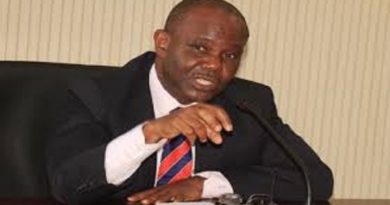FG to review Environmental Impact Assessment Act
As part of efforts to address the current environmental challenges, emerging issues and the climate change phenomenon, the Federal Government has commenced the process of reviewing the Environmental Impact Assessment (EIA) Act.
The Minister of Environment, Mrs Amina Mohammed announced this on Wednesday at a stakeholders roundtable organised by Wetlands International (Africa) in partnership with the ministry.
Represented by Mr John Alonge, the Director, Environmental Assessment, Mohammed said the review became necessary to mitigate and reduce the negative effects on the environment.
The minister described the EIA as a veritable tool for sustainable development.
She said when reviewed the act would ensure stiffer penalties for telecommunication companies, as well as multinational oil companies responsible for environmental pollution and degradation.
The minister noted that the law had been in practice for more than two decades, and therefore, needed to be urgently reviewed to meet international best practices in environmental management.
“Let me seize this opportunity to emphasise that projects in the oil and gas sectors either public or private sectors are subjected to the provision of the EIA Act.
“Environment is an ultimate resource. The revision cuts across all sectors of the economy and the reason we are reviewing this, is because there are a lot of gaps in the current Act.
“With the climate change issue, we have to revise to know the areas of weaknesses and gaps to meet international, global best practices especially in the oil and gas sector,’’ Mohammed said.
The minister said the Act, which had gone to the inter-ministerial committee on environment, would soon be forwarded to the National Executive Council and the National Assembly.
Mr Ibrahima Thiam, the Regional Director, Wetland International in Dakar, Senegal, said the EIA was important to mitigate the effects of oil and gas industry on bio-diversity and ecosystem to economically develop the Niger Delta.
Thiam said the goal of the roundtable was to gather experts from oil and gas sector, and civil societies to discuss ways of improving EIA to achieve the SDGs.
“Nigeria as many other countries in the world are engaged in developmental activities but in the Niger Delta, the oil and gas sector affects the natural resources in the area.
“It is important for Nigeria to do EIA so that they can help to reconcile the development objectives and the environmental needs.
“We have been working in the Niger Delta because it is one of the Nigeria’s most important wetlands.
“It is important that EIA is carried so that the oil and gas extraction can happen in a way that will take into account the existence of the natural resources,’’ he said.
Some of the stakeholders at the event expressed optimism that the EIA Act, when reviewed, would make multinational companies accountable for spillages and damages in the Niger Delta region



